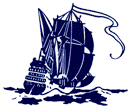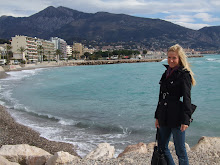When listing out the countries that I planned to visit on this trip, I often got asked the question, "Why Iceland?" Dirty beaches are not typically associated with the remote coastal areas of the far North Atlantic. Initially my answer to this question was that I planned to visit Iceland out of pure curiosity. Although I hadn't heard of much concern on the topic of marine debris in the country, I was aware of the surprising amount of trash that washes ashore on some of the Arctic Islands such as Svalbard, Norway. While flights to such far out islands were reaching well out of my price range, I opted to check out the trash situation in Iceland- an island located within the North Atlantic current system that could be reached without breaking my budget.
To my surprise, I was bombarded with opportunities to join cleanups and volunteer work camps once I arrived in the country. A young, energetic group called Worldwide Friends is very active in beach cleanups all throughout Iceland. They take volunteers from around to globe for extended-stay work camps where they visit some of the most pristine, remote sites in the country to clean the beaches. How I didn't come across this group in my endless online searching is still a puzzle to me, but I was very luck to have happened upon them as I did. Unfortunately I didn't have the time to join all of their projects, so I chose the most feasible and interesting one and booked a trip to the West Fjords for the following morning.
I met with a small group of international volunteers- mostly Europeans and one lovable Canadian- who were busy cleaning the beaches of the West Fjords. We stayed in an abandoned school house in Nupur- a small town on the coast of a jetting fjord with a declared population of 2. The plumbing in the school worked and there was no need for electricity with so many hours of sunlight, so we staked out spots with our sleeping bags on the gymnasium floor and set out during the days to walk the coast lines. Covering between 8 and 12 kilometers per day, we filled quite a few trash bags.
We found a high amount of wood, which I usually choose to overlook as it has little to no impact and can be bulky and too heavy to remove. It took me a few kilometers, however, to realize that all of this wood washing up was actually quite peculiar considering that Iceland has very few trees. Turns out, by the way the currents flow, most of the wood we were finding was likely from Siberia and has been used to heat the homes dotting the tree-less valleys of the West Fjords for years. Amongst the lengthy list of unfavorable impacts that I'd developed over the months, I finally came across an item washing to shore that had benefits and was in fact valued by the locals.
 The group trying to remove a large canvas bag- remnants of the supplies dropped by air by U.S. forces during the 70's and 80's
The group trying to remove a large canvas bag- remnants of the supplies dropped by air by U.S. forces during the 70's and 80's





No comments:
Post a Comment